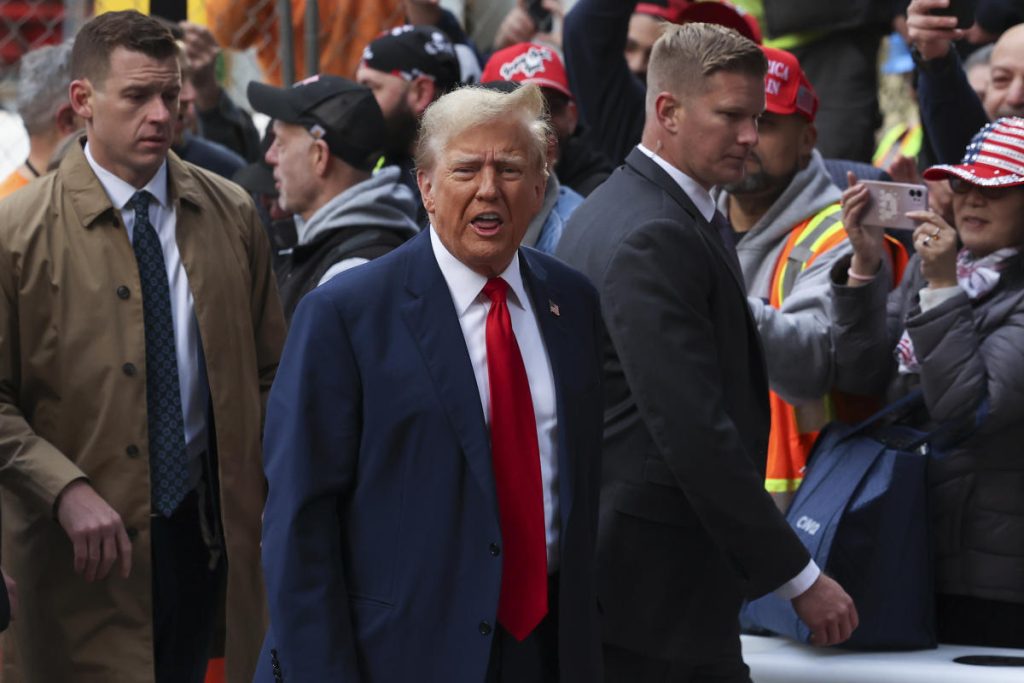In New York City, Donald Trump is facing a hush money trial as the U.S. Supreme Court hears arguments over whether he should be immune from prosecution for actions taken during his presidency. Trump requested to skip his trial in order to attend the high court session, but his request was denied by the judge. The trial revolves around alleged hush money payments made to prevent damaging stories about Trump from surfacing during the 2016 campaign.
The proceedings in both New York City and Washington, DC are intertwined, as Trump is attempting to avoid legal trouble while pursuing another White House bid. The Supreme Court case will address the issue of whether a former president enjoys immunity from criminal prosecution for actions taken during their time in office. The outcome will have far-reaching consequences for future presidents, as the question has never been addressed before by the high court.
The New York City trial focuses on Trump’s conduct as a candidate in 2016, rather than as president. He faces 34 felony counts related to falsifying business records in connection with hush money payments. The trial is the first of four criminal cases against Trump to go before a jury, and he maintains his innocence in the face of the charges against him. Trump has argued that the stories that were silenced with hush money were false.
The trial features testimony from David Pecker, former publisher of the National Enquirer and a longtime friend of Trump. Pecker was described as Trump’s “eyes and ears” during the 2016 campaign and testified about how he helped to suppress negative stories about Trump. The judge may also consider holding Trump in contempt and imposing fines for violating a gag order by making public statements about the case and those involved.
A conviction in the hush money probe would not prevent Trump from running for president again, but being a state case, he would not be able to pardon himself if found guilty. The charge is punishable by up to four years in prison. The Supreme Court arguments relate to federal charges in Washington, where Trump is accused of conspiring to overturn the 2020 election results. Lower courts have ruled that he cannot claim immunity for actions that allegedly interfered with the election.
The Supreme Court’s decision and the outcome of the New York City trial will impact Trump’s future political aspirations and the broader implications for presidential immunity from prosecution. The legal battles surrounding Trump highlight the challenges faced by former presidents when it comes to legal accountability for their actions while in office. The political and legal landscape is complex and evolving as Trump navigates multiple legal battles as he seeks to return to the White House.













